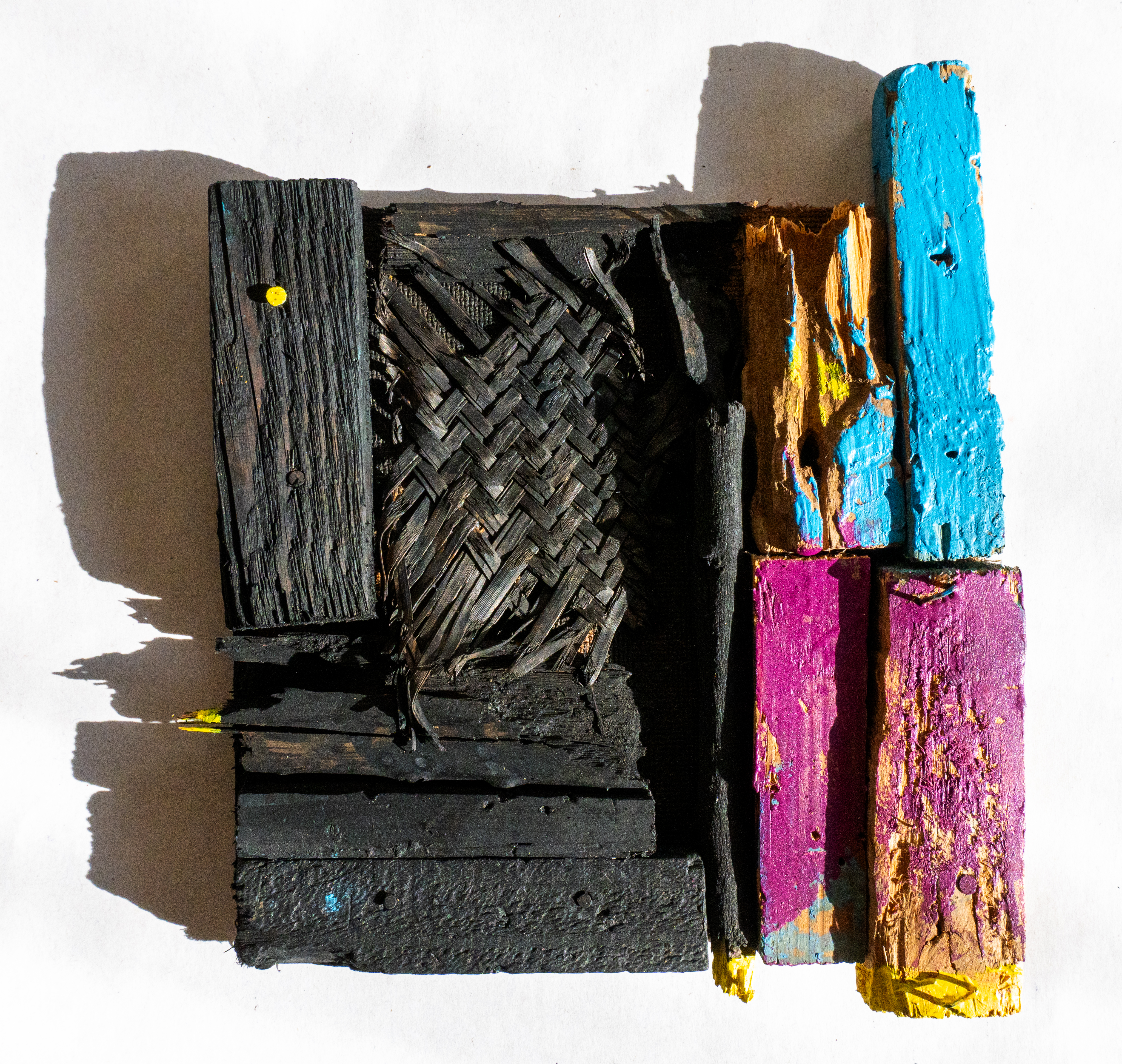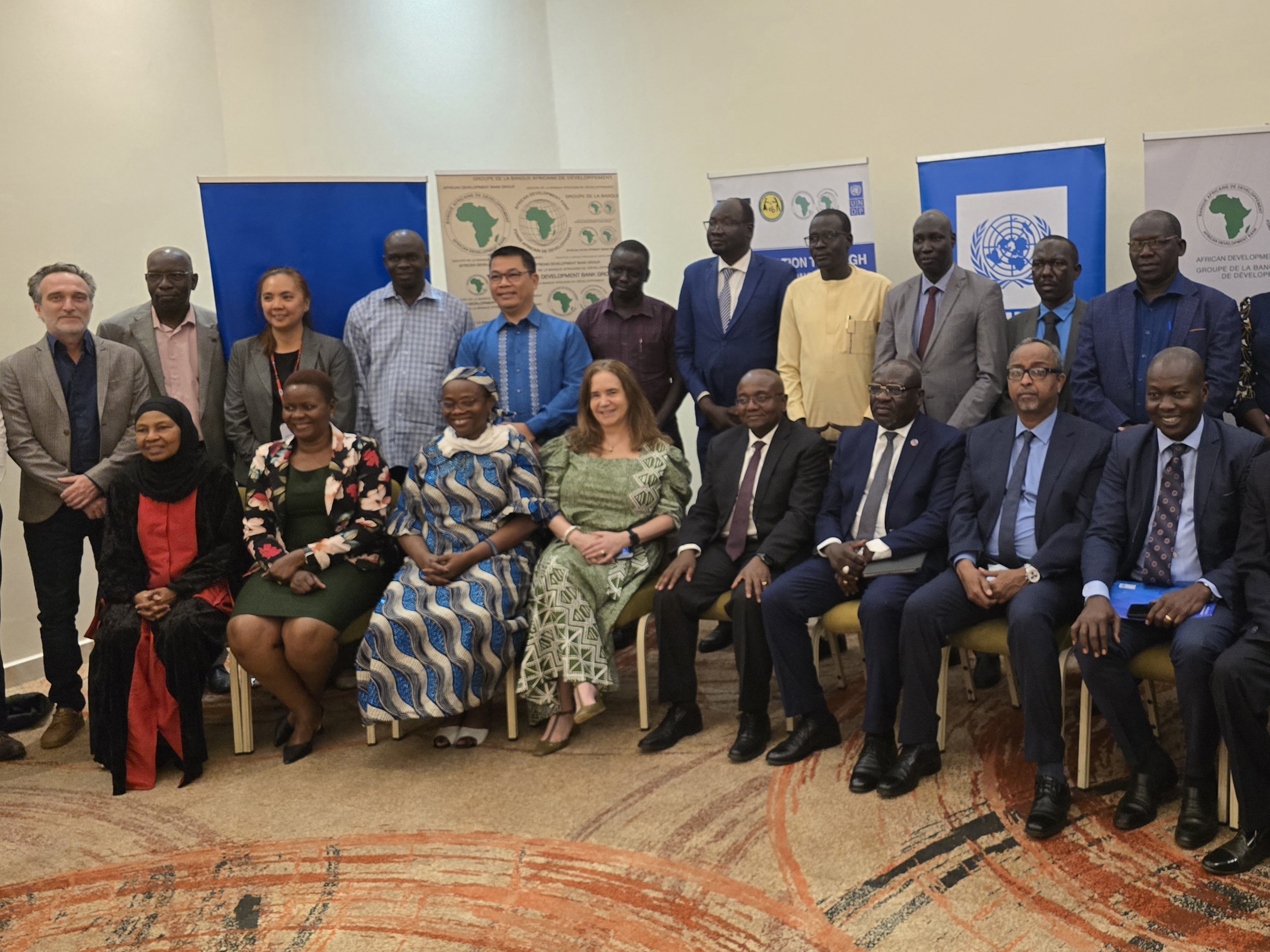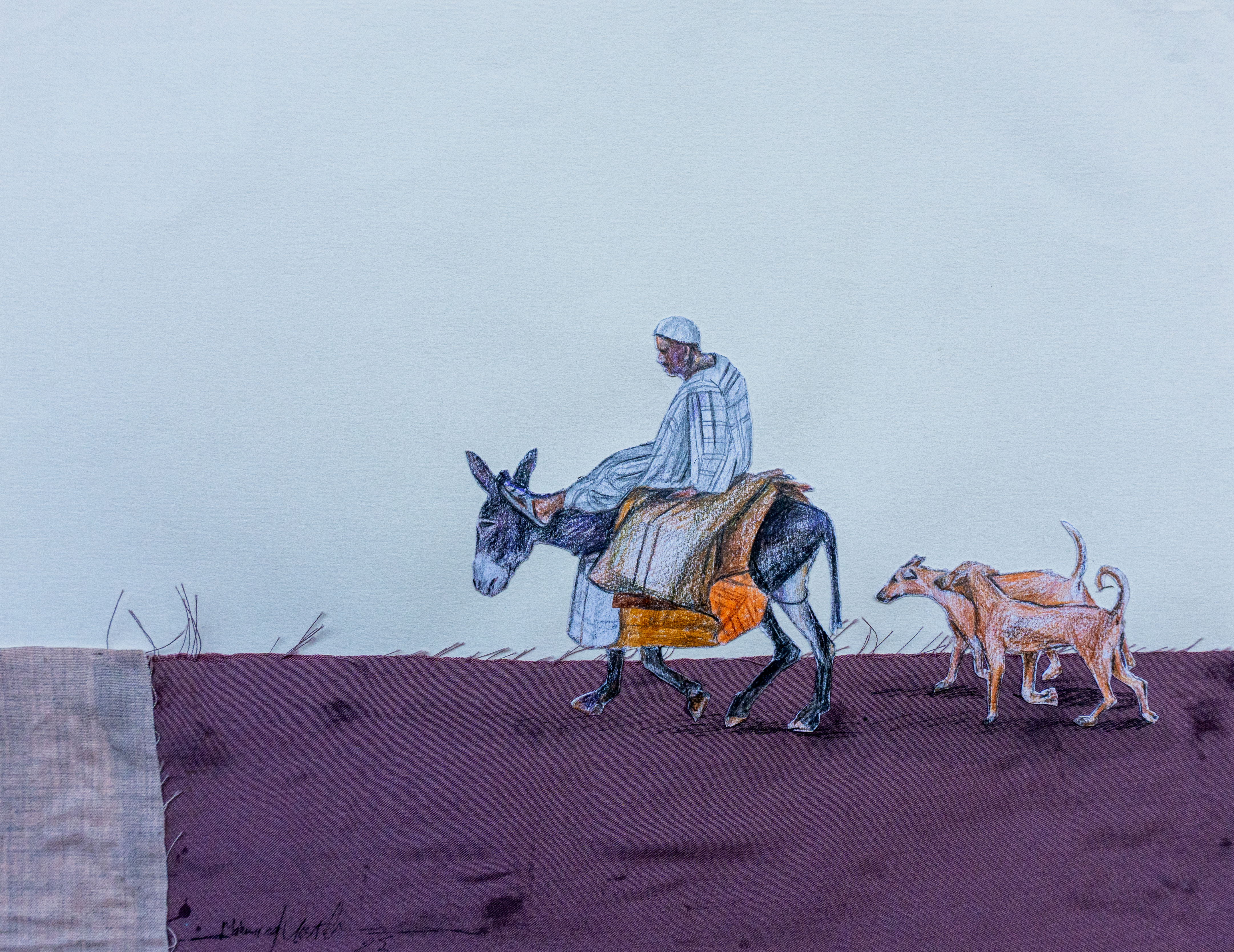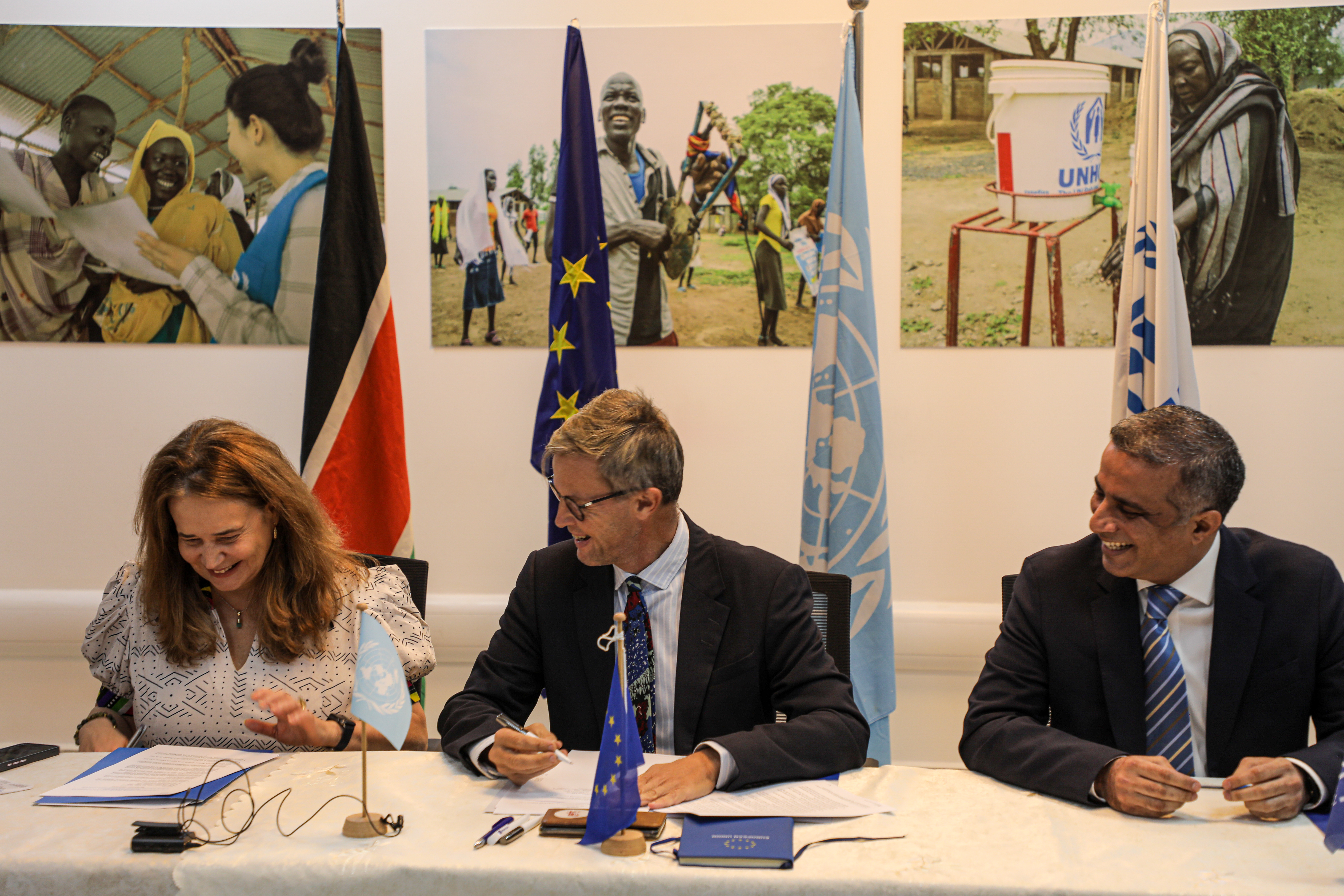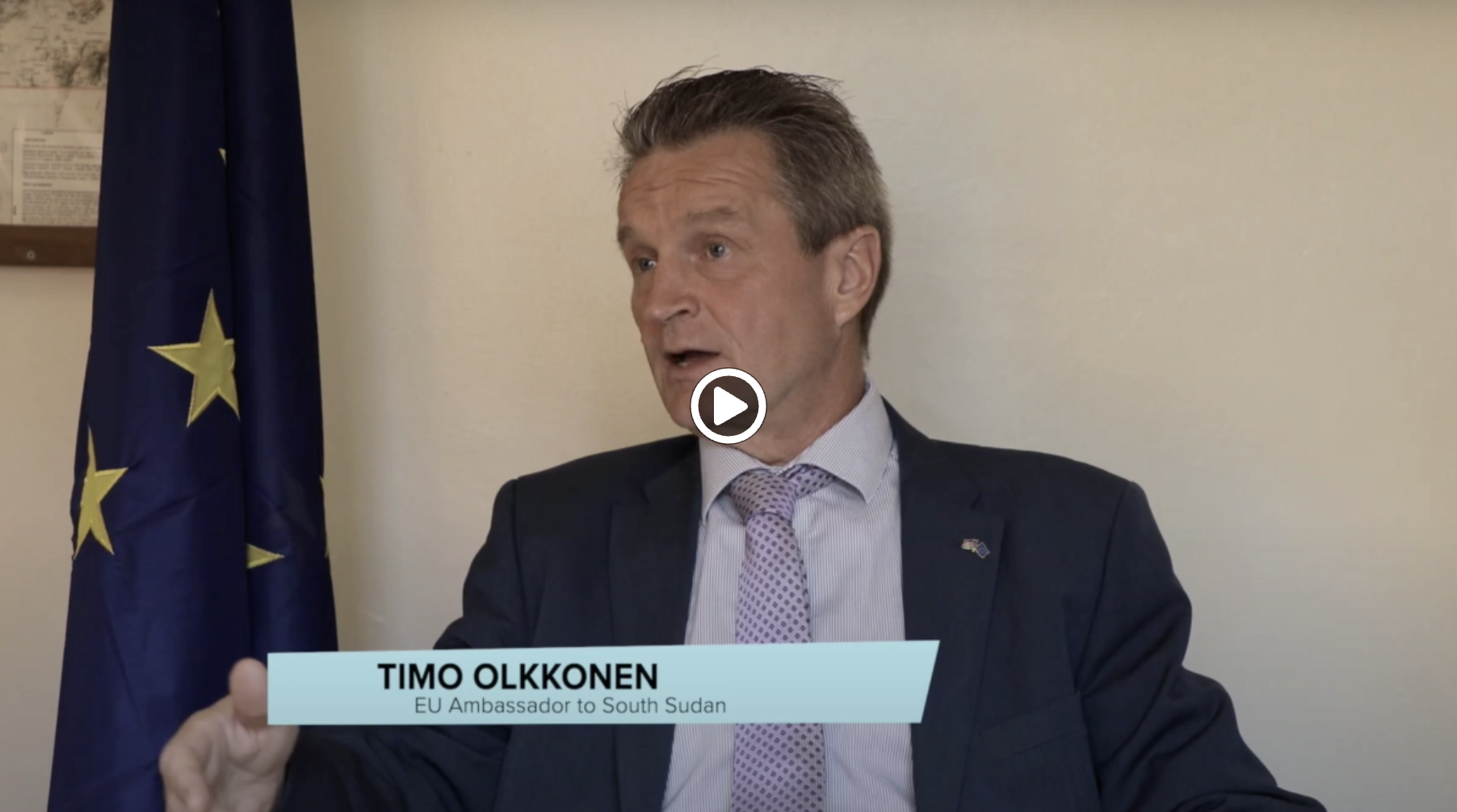South Sudan

South Sudan
On this page
South Sudan's Response to the Sudan Emergency
Fourteen years after gaining independence, including seven years after signing the most recent peace agreement, people in South Sudan continue to face deteriorating humanitarian conditions amidst a worsening economy. Conflict, subnational violence, public health challenges, climatic shocks, and large-scale displacement have severely affected people’s livelihoods and hindered access to essential services. Forced displacement in South Sudan is highly complex, with large numbers of internally displaced persons, refugees, and returnees living side by side with host communities.
Since the onset of the conflict in Sudan in April 2023, more than one million individuals have arrived in South Sudan from Sudan, including returnees, refugees, and asylum seekers. As of April 2025, more than 350,000 newly arrived Sudanese refugees in South Sudan have been transferred to existing refugee settlements in Upper Nile and Ruweng Administrative Area and to a newly established settlement in Aweil in Northern Bahr el Ghazal. More than 750,000 South Sudanese who had sought refuge in Sudan before the conflict were forced to return under adverse circumstances. Upon arrival in South Sudan, returnees indicate their intention for onward destinations – primarily to Upper Nile, Unity State, Central Equatoria, Northern Bahr el Ghazal, Warrap and Western Bahr el Ghazal. Returnees are also finding their way to peri-urban centres such as Juba, Bor, Torit, Yei, and Malakal. UNHCR conducted a socioeconomic profiling exercise in Renk in November 2024, providing insight into the profiles of refugees and returnees from Sudan regarding skills, education, income and occupation.
The conflict in Sudan has had a catastrophic impact on South Sudan, disrupting trade and leading to a rise in food and commodities prices. This price surge exacerbates protection risks and vulnerabilities, further straining access to essential goods and services. It has also increased these communities’ food insecurity, negative coping mechanisms, and humanitarian needs. On top of this, climate change poses a significant additional threat to South Sudan, the second most vulnerable country to natural hazards globally in the 2024 INFORM Risk Index.
Despite facing significant development challenges, including the impacts of climate change and high levels of displacement—particularly in border areas—the Government of South Sudan has upheld an open-door policy, allowing access to its territory for all individuals arriving from Sudan, including Sudanese refugees, other refugees, returnees, and third-country nationals. The Government has granted prima facie status recognition to all Sudanese affected by the current crisis. This conducive policy environment creates the momentum to facilitate development approaches that support local authorities, host communities, and forcibly displaced and returnee populations
Policy & Legal
Policy & Legal
South Sudan's refugee protection system is grounded in the 2012 Refugee Act and its 2017 Refugee Status Eligibility Regulations, complemented by the 2019 National Comprehensive Migration Policy.
Learn more about the policy environment in South Sudan
Border Monitoring
In response to the increasing influx of refugees and returnees from Sudan due to the ongoing conflict, UNHCR, IOM and the Government of South Sudan established joint border monitoring and strengthened data collection. This initiative provides real-time information on the number, conditions, and immediate protection needs of returnees, supporting partners' response efforts.
Returnee monitoring enables the systematic collection of data on protection concerns and returnees’ perceptions of conditions in areas of return—including safety, security, access to basic services, infrastructure, and livelihoods. Additionally, analyzing trends in onward and pendular movements helps assess the sustainability of returns and the effectiveness of reintegration support.
This collaboration has led to the development of a joint dashboard offering live updates on inflows and returnee intentions. The data informs the identification of protection, rehabilitation, reintegration, and early recovery needs, guiding efforts to provide targeted assistance. Moreover, it is critical for shaping reintegration programming within national, regional, and local development frameworks.
Community-Based Assessment
UNHCR, with support from EU INTPA, has been conducting a comprehensive service gap analysis in four key return areas of South Sudan—Aweil, Torit/Magwi, Raja, and Yei/Morobo—assessing both local and displaced populations' needs. These Community-Based Assessments (CBAs) evaluate infrastructure capacity, service quality, and the potential for scaling up to identify gaps between existing services and current needs. Developed in collaboration with Samuel Hall, the CBA methodology integrates site visits and mixed-methods data collection to build an indicator framework that examines service availability, quality, and absorption capacity.
The CBAs employ a multi-sectoral approach, analyzing key dimensions such as conflict and protection, infrastructure capacity, livelihoods, education, health, and integration. Data was gathered through key informant interviews, community surveys, focus group discussions, GIS analysis, and fieldwork, allowing for a detailed assessment of service provision. The assessment found that in Aweil, a key host for Sudanese and South Sudanese fleeing conflict in Sudan, healthcare is already stretched to maximum capacity; however, restructuring three (out of nine) substandard facilities would improve cost-effectiveness and strengthen the system’s ability to meet increased demand from returning refugees. The findings aim to inform evidence-based programming and encourage coordinated development efforts among national and local governments, international agencies, and humanitarian actors, enhancing strategic planning and resource allocation, ensuring more effective, inclusive, and coordinated responses to the challenges faced by returnee and host communities.
Host Communities in South Sudan
While the needs are immense and span the whole country, priority interventions are recommended in areas hit hardest by the impact of the Sudan conflict, including Renk, Aweil, Malakal and JamJang. All of these locations are characterized by a high level of poverty and food insecurity and wide gaps in infrastructure and public services, alongside deep institutional deficits. These investments are critical as the ongoing Sudan crisis has the potential to rapidly destabilize the entire northern region of South Sudan, leaving millions of people at risk of further displacement and violence.
Basic Services
The high number of new arrivals in South Sudan is constraining the capacity of the State to provide basic services and has the potential to increase intra and inter-communal tensions and security risks. There is an urgent need to expand and strengthen health, education and WASH infrastructure in areas receiving the largest numbers of new arrivals from Sudan. This includes equipping and expanding classrooms in primary and secondary schools, accelerating English classes for integration, and supporting vocational training for refugees and host communities. Equally, there is a need to boost the capacity of health facilities and WASH services.
Refugee IDs and Civil Documentation
Those returning to South Sudan lack proper legal and civil documentation, which hinders their integration. In addition, refugee identification—which is a pathway to livelihood and self-reliance and also a Global Refugee Forum (GRF) pledge of the Government—requires support.
Livelihoods and Economic Inclusion
Most of South Sudan’s 12.45 million population live in rural areas and depend on agriculture, livestock, fisheries and forest products for food, energy, and income. However, the impacts of climate change and displacement threaten these resources, which in turn drives food insecurity, malnutrition, tensions and conflict over scarce resources. While acknowledging recent investments by the AfDB, World Bank, EU, and others, further investments are essential to boost sustainable food production and food security, improve the skills of youth and women for self-reliance and wage employment, develop agricultural infrastructure, and support the development of micro, small, and medium enterprises for economic inclusion.
Environmental Rehabilitation and Climate Resilience
In support of the government's GRF pledge on climate action, additional investments are needed to restore degraded forest and land resources, reduce losses to farm crops and the effects of flooding on farmlands, and strengthen access to energy in Malakal and Maban.
Infrastructure Development
Further investments are urgently needed to improve road infrastructure in the Upper Nile region.
Settlement Planning and Housing
There is momentum supporting the development of integrated settlements and urban planning. The creation of master plans and investments in durable housing solutions are crucial to integration and peaceful coexistence.
Peaceful Co-existence and Reintegration
The arrival of returnees and refugees has impacted the country and communities, leading to tensions with local communities. Further investment is needed in area-based approaches and activities that promote peaceful coexistence.
Ongoing Development Partner Interventions
Documents Library - South Sudan
- UN Refugee Agency (UNHCR)
- World Health Organization (WHO)
- UN Refugee Agency (UNHCR), Mixed Migration Centre (MMC)
- Mixed Migration Centre (MMC)
- UN Refugee Agency (UNHCR)
- UN Refugee Agency (UNHCR)
- UN Refugee Agency (UNHCR)
- UN Refugee Agency (UNHCR)
- UN Refugee Agency (UNHCR)
- UN Human Settlements Programme (UN-Habitat)
- UN Human Settlements Programme (UN-Habitat)
- UN Human Settlements Programme (UN-Habitat)
- UN Human Settlements Programme (UN-Habitat)
- UN Human Settlements Programme (UN-Habitat)
- UN Human Settlements Programme (UN-Habitat)
- Government, South Sudan
- Government, South Sudan
- Government, South Sudan
- Government, South Sudan
- Government, South Sudan
- Government, South Sudan
- Government, South Sudan
- UN Refugee Agency (UNHCR)
- Government, South Sudan
- Government, South Sudan
- Government, South Sudan
- UN Refugee Agency (UNHCR)
- UN Refugee Agency (UNHCR)
- UN Refugee Agency (UNHCR)
- UN Refugee Agency (UNHCR)
- UN Refugee Agency (UNHCR)
- UN Human Settlements Programme (UN-Habitat)
- UN Human Settlements Programme (UN-Habitat)
- Government, South Sudan
Contacts
UNHCR: Pierre Fichter, Senior Development Officer ([email protected])
UN-Habitat: Sophos Sophianos ([email protected])
UN-Habitat: Princesse Samba Makondele, Regional Urban Planner and Architect, Humanitarian Development Programme ([email protected])

